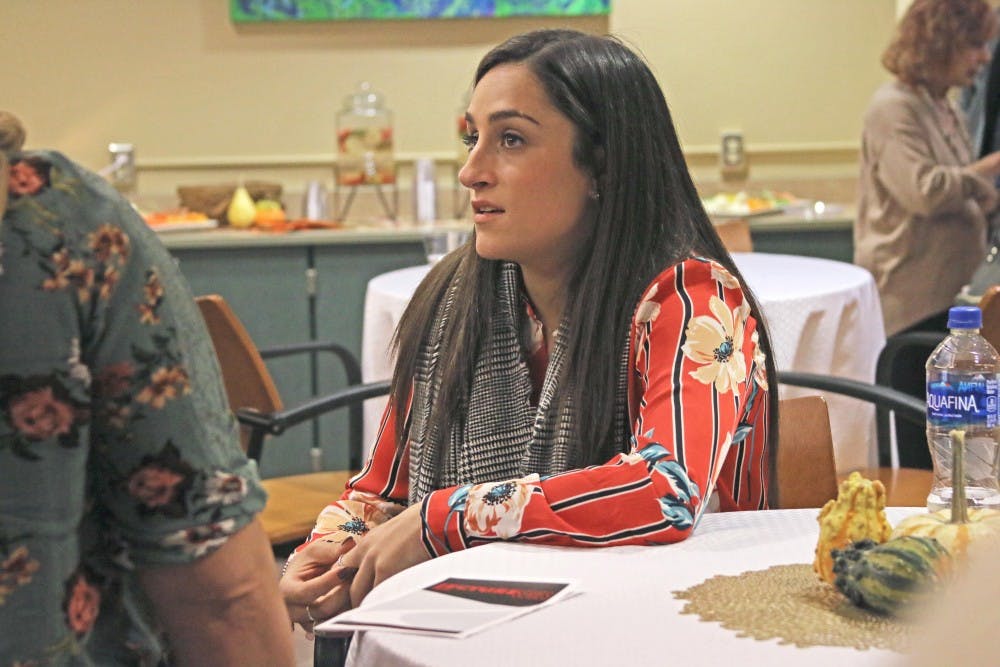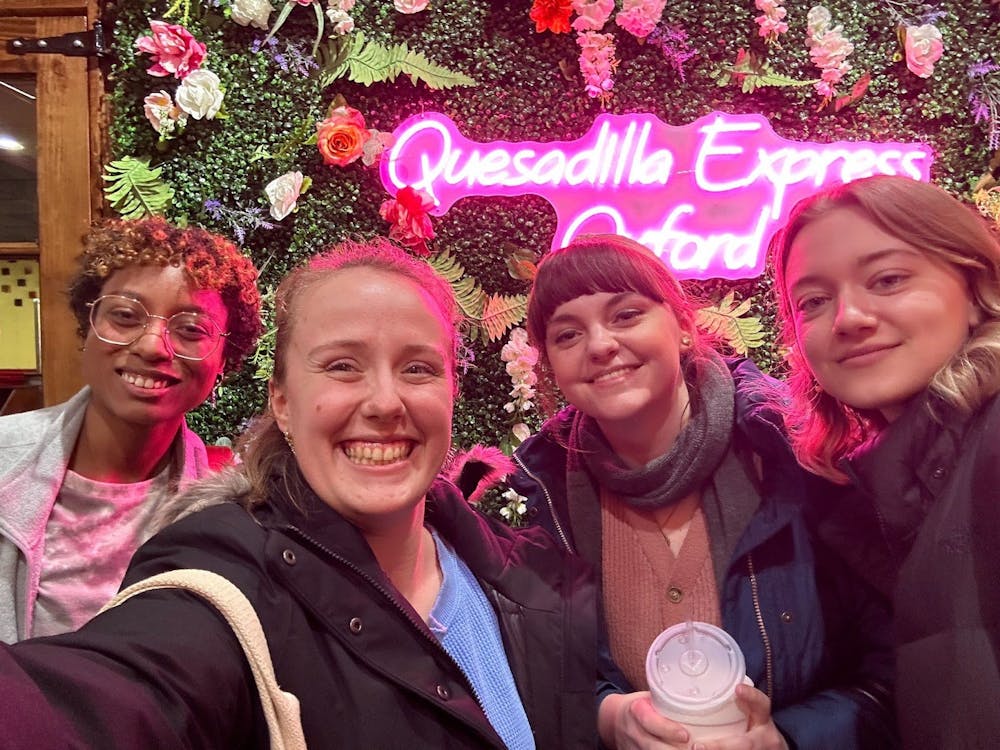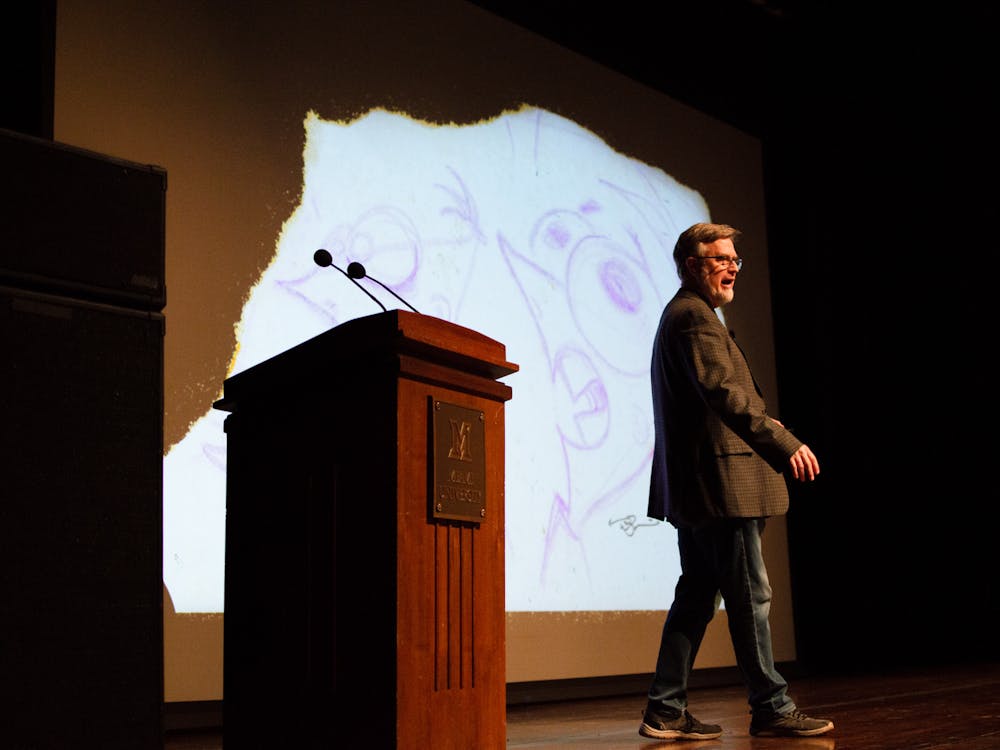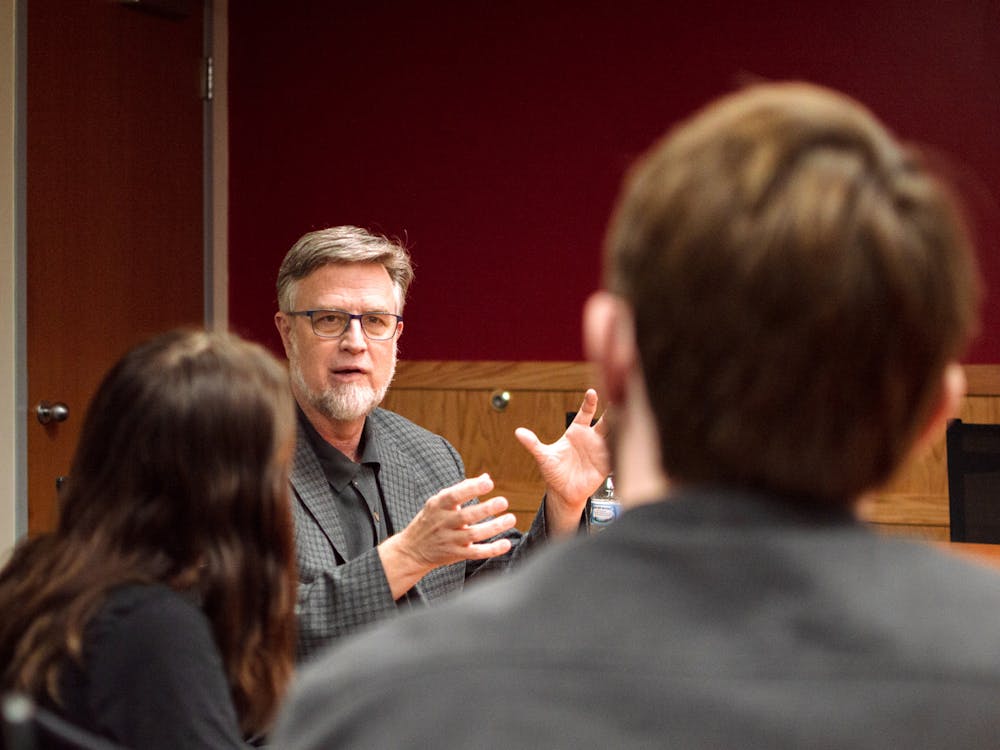
 Students filed into Hall Auditorium Monday night, buzzing with conversation and laughter, waiting for Olympic gymnast Jordyn Wieber and activist Rachael Denhollander to take the stage.
Students filed into Hall Auditorium Monday night, buzzing with conversation and laughter, waiting for Olympic gymnast Jordyn Wieber and activist Rachael Denhollander to take the stage.
The Miami Lecture Series event, titled "Sister Survivors: Former Gymnasts Ignite Change," provided an opportunity for the speakers and audience to engage in a Q&A session moderated by John Ward, director of student counseling services at Miami.
Wieber and Denhollander both spoke out against serial sexual abuser and former USA Gymnastics team doctor Larry Nassar.
Denhollander was the first woman to speak out publicly against Nassar. She works as a sexual assault educator in addition to her career as a lawyer. In 2018, she was named one of Time Magazine's 100 Most Influential People in the World.
Wieber was part of the "Fierce Five" during the 2012 Olympic Games. She started as a gymnast at age five, made the U.S. national team at age 11 and made the Olympic Team at age 17. She stepped forward in April 2018 to file a lawsuit against USA Gymnastics, Michigan State University (MSU) and the U.S. Olympic Committee.
During the Q&A, both women outlined the repercussions of rampant sexual abuse which was ignored for years, the emotional aftermath they continue to work through and finally, activism and the importance of listening to survivors.
Denhollander began by discussing the effect such a broken system has on children.
"We have a society that places money and medals over the safety of little girls," she said.
Wieber talked about her hesitancy to attach her name to her report against Nassar, fearing a change in her reputation and how people viewed her. She talked about seeing her teammates speaking up and how slowly, she saw her responsibility in bringing this issue to light.
Denhollander connected her personal meaning of strength to her difficult experience over the past couple years.
"[It's] the ability to deal with reality, to be able to speak the truth about what's going on around you..to be able to look it in the face and speak the truth about it," she said.
Wieber talked about how she processed emotions after spending years in a gymnastics environment that forced her to "compartmentalize her emotions" and where "feelings are not welcome."
Enjoy what you're reading?
Signup for our newsletter
She was told if she cried during practice, she'd be kicked out of the gym. It took some time for her to understand what an unhealthy mindset this was.
Despite the enduring abuse, Wieber says, her experience has taught her some important things about herself.
"It's helped me become a more empathetic person, a more compassionate person, because I realize that sometimes people are going through things that they may not show on the outside," Wieber said.
Nassar was sentenced to 40 to 175 years in prison for abusing girls--many of whom were in the Olympics--in addition to a separate 60-year sentence for child pornography convictions. Additionally, MSU's former president Lou Anna Simon resigned following Nassar's conviction.
However, neither Wieber nor Denhollander, or any others who testified, have received personal apologies from any of the institutions responsible for the abuse.
Denhollander also brought up the Brett Kavanaugh hearings, saying the victim-blaming responses following Kavanaugh's confirmation sent the message that girls should "sit down and shut up."
Denhollander emphasized the role parents have in protecting their children and teaching them how to recognize signs of abuse. The speakers wrapped up the Q&A by citing the need to listen to survivors and make sure they're believed and heard, as well as utilizing physical activity, journaling or art as ways to cope with the wave of emotions survivors experience.
Miami junior Caitlyn Wilson, an athletic and kinesiology major, found the event meaningful, after having spent many positive years in the gymnastics community.
"It was interesting to see the other side of it, and yes, I've heard about it, but having them talk to us about their experience...that was very inspiring to see and very enlightening to see on my standpoint," Wilson said.
Jane Goettsch, director of the Women's Center at Miami, said she gained a powerful takeaway from the event.
"One of the things that Rachael said, she asked the question, 'What happens when it would cost you to care?' that was really profound for me," Goettsch said. "When it costs you to do the right thing, that's when...you really get to who you are as a person."




